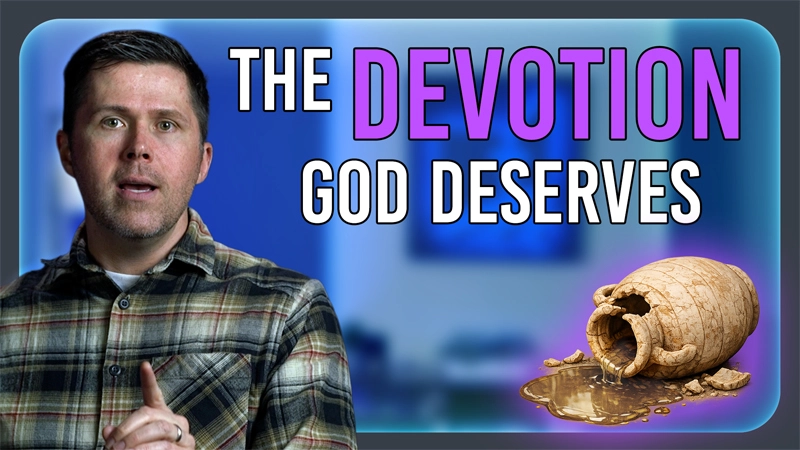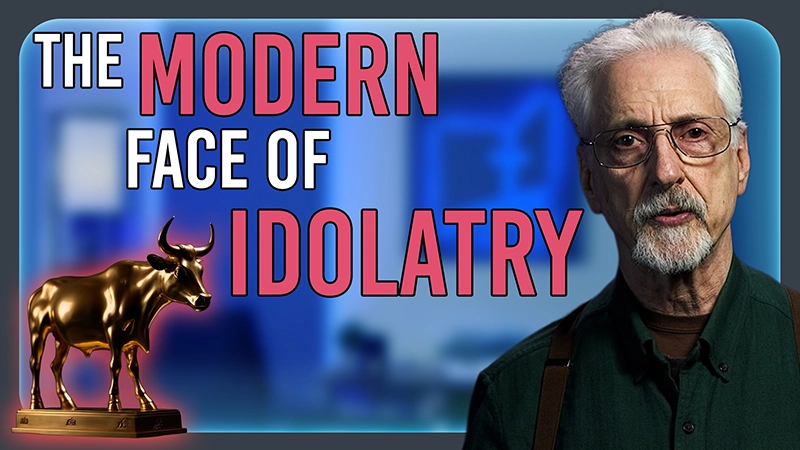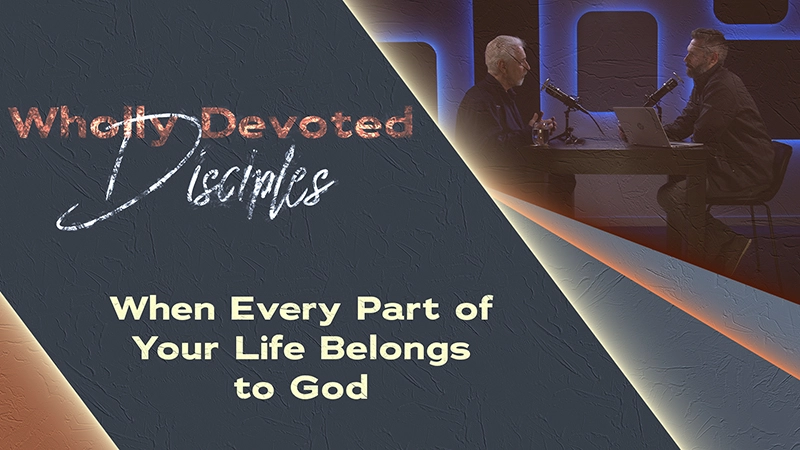
Side Effects of the Proud Heart: Rage
When a person has a proud heart, it can display itself in many ways. One of those ways is through outbursts of anger, or rage. In this interview from our series Exposing the Root of All Sin, pastoral counselor Chris Hurley helps us see the connection between pride and anger more clearly.
Host: I asked Chris Hurley to join me in the studio. Chris is one of our pastoral counselors in the residential program. I want him to talk with me about our first daughter of pride which is rage. The Greek word translated rage means anger that can be explosive and deadly. Chris, I’d like to get your perspective because as you counsel men in our residential program, I’m sure you come across this. One thing that we know about sin of every stripe is that it's progressive. A person doesn't wake up one morning and start visiting prostitutes, and he doesn't give himself over to rage the first time that he's provoked. How does a person get to the place where they're given over to rage? Do you see common things that lead men to that point over time?
Chris: Sure, they all seem to express in one way or another a huge amount of self-righteousness. Within their own eyes they've created a false impression that they are always right. So what we see in men that get filled with rage is that if anyone tests the boundaries of their belief system about themselves, they’re viewed as an intruder and a danger because they have such a fragile wall of self-defense around them. Their wall has been fostered by hurts, pains and issues from their past. If you question them about who they think they are in their own eyes it can blow them out of the water and they just suddenly erupt.
Host: Yeah, I'm glad that you mentioned this reality of self-righteousness and arrogance within people, and how it can lead to violent anger. We do see this happening in the life of Jesus as well. In Luke chapter four, He was ministering in his hometown synagogue in Nazareth and He explained to the people that they weren’t going to believe in His ministry. He was rejected vehemently because He had to deal with them as sinners, in a sense, and it offended them. So I'm glad that you brought that up, it’s very helpful. Can you identify any other prideful attitudes that fuel rage and violent anger?
Chris: I can look at my own life and see that perfectionism fuels arrogance. They are hand in hand because you see yourself as being above everyone else. The Bible is very clear when it says “think of others more highly than you think of yourself” (Philippians 2:3), but for a person that's filled with pride and the idea that being perfect is the only way they can be acceptable to others, it's a free highway to anger! You can't be perfect, so you’ll be angry when your not. When people say to you “hey, that's not good enough,” it can cause you to resent them and be full of rage.
I looked at some Biblical examples before coming in to talk with you today that expand on this truth. Naaman, for instance, was a general in the Syrian army and highly valued by his king because he was a very good soldier and a righteous man in the sight of the King. So when he went to Israel as a leper to get cured, and his little servant girl came back from Elijah and said “you go wash in the Jordan River seven times,” his pride was deeply insulted. He was likely thinking he deserved a ceremony, or Elijah would say brilliant prayers over him to show his great value. The great thing about this story is that the ones who spoke truth into his life were his servants. The lowest of the low were the ones who had it right. His servant said to Naaman, “if he had asked you to do a great thing you would have done it well, so then why not try this and see what happens?” Of course, we know he gets healed by God in this act of washing in the Jordan and humbling himself.
Another biblical example that illustrates a connection between pride and rage is Nebuchadnezzar. When this ancient king erected a massive statue and made it an edict that everyone was to bow down before it, Shadrach, Meshach and Abednego refused because they believed in Yahweh. When this was brought to the attention of Nebuchadnezzar, and they said “no, we will not bow down to your image,” he was filled with rage. He said, “take the furnace and heat it seven times hotter!” I can see that Nebuchadnezzar’s pride was assaulted. His grand view of himself assaulted. He was thinking “I am great… Am I not worthy of you bowing to me?” Wow. This is prideful arrogance which led to his rage. And we ourselves, as an often proud an arrogant people, we have bowed to everything but our God. One of the things we've bowed to his anger.
{{blog-brse="/blog-ads-storage"}}
Host: In upcoming episodes we're going to address the ways to overcome pride and the self-life. However, you've already touched on it Chris. Humbling ourselves is an important step, and that's going to be clear in future episodes where we’ll talk about how to live in freedom from pride. But to close out this interview I want to talk about one more thing. Are there things that would hinder a person from getting victory over rage and anger? I think if we could discuss a couple hindrances that would help the audience be ready to hear the positive steps toward victory.
Chris: I think in the world of psychology today one of the common themes is the idea of self-esteem. As the church, it’s an issue if we’re looking to sources outside of God’s word, such as self-esteem, to build our lives upon. We tend to have a high view of ourselves in America for various reasons. A high self-esteem is often true of those who are very wealthy. And for those who have a great education and great knowledge among us; we tend to exalt ourselves over those things and we give less esteem to those we consider to be intelligent. Self-esteem has a huge role to play in hindering men from believing that they are the problem in their lives with their pride, with their anger and with their rage.
Another factor that hinders people from overcoming rage and anger is resistance to authority, whether it's spiritual authority or earthly authority. When men come to Pure Life they are put under the authority of a biblical counselor. For men who have never submitted to authority in their lives, and who have called themselves Christians, when they are sat down and their sins are confronted they respond in anger. In counseling we talk about the lives of these men and look at the fruit that has come out of them, and it gets them angry. You can see it in their demeanor when they sit back in the chair the counselor just spoke about something in their hearts and to them it’s a frontal attack on who they believe themselves to be. It takes a while for many men to finally sit down and say to me, “I’ve realized after reading the Bible that I am the problem.” And this takes a while, to break through that wall of self-defense that we all erect to protect ourselves.
















